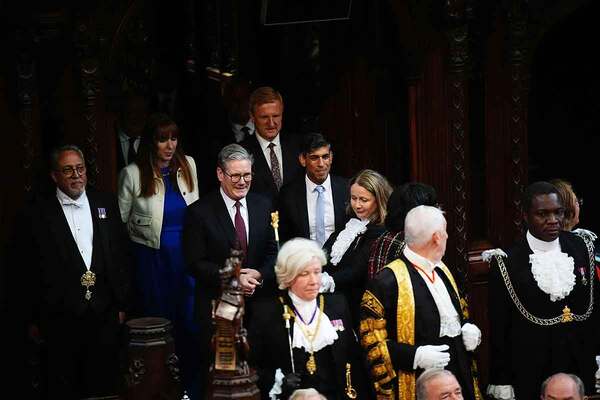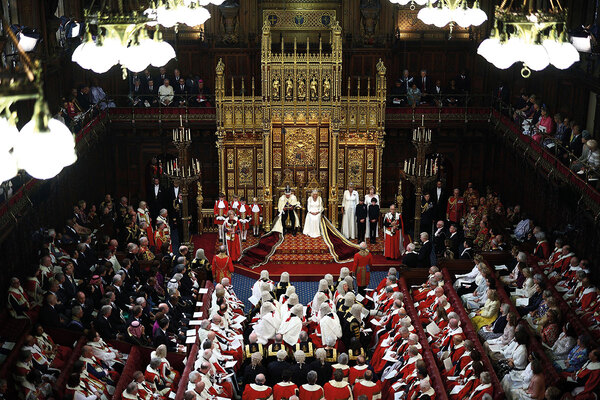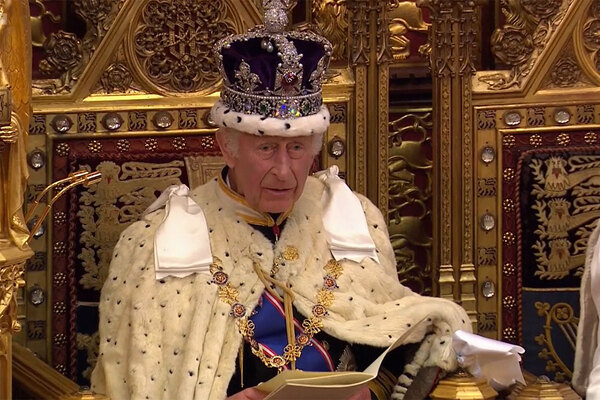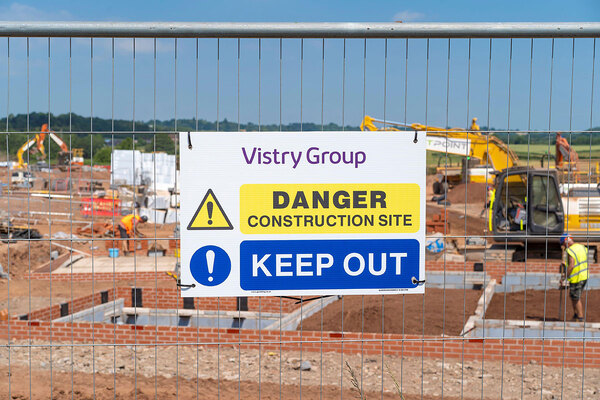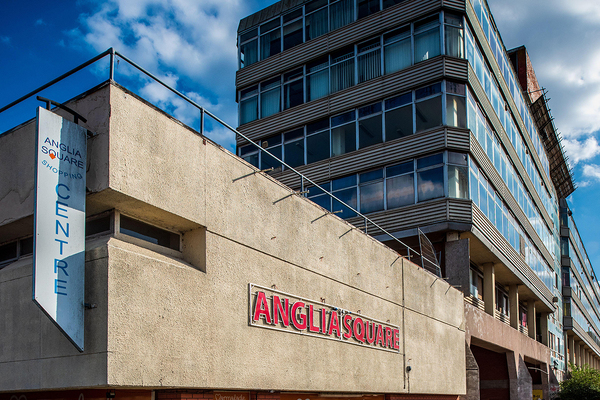You are viewing 1 of your 1 free articles
Dissecting the housing promises in the King’s Speech
Labour’s first King’s Speech made a lot of promises on housing. But, Jules Birch asks, will they be enough to tackle the crisis?
Amid the excitement of the first Labour King’s Speech in 15 years, it may seem churlish to inject a note of scepticism.
The excitement lies in the prospect of planning reform to deliver more homes, the potential of more devolution in England, the promise of improved rights for private renters and the hope that we could at long last see the abolition of leasehold.
Nobody should underestimate the potential of this programme to improve the lives of millions of private renters and leaseholders or the determination of the government to use its mandate to deliver more new homes.
Yes, we already knew all of this from Labour’s manifesto, but hearing them in the King’s words amid the pomp and ceremony of the state opening of parliament begins their transition from promises on a page to action in the real world.
The scepticism comes from two directions. First, and most obviously, the closer we get to implementation of these reforms, the more the details matter.
The background document has some of these, but more will follow once the Planning and Infrastructure Bill, the English Devolution Bill, the Renters’ Rights Bill and the Draft Leasehold and Commonhold Reform Bill make their way through parliament over the next few months.
The second reason for scepticism is the hype that comes with it. Take this paragraph from the prime minister’s introduction to the King’s Speech: “Too many people currently live with the threat of insecurity and injustice, and so we will make sure everyone can grow up in the secure housing they deserve. We will introduce tough new protections for renters, end no-fault evictions and raise standards to make sure homes are safe for people to live in.”
The second sentence describes what the government will do for private renters. These are good but they do not come close to meeting the aspiration in the first.
A dose of high-flown rhetoric is perfectly understandable, but Sir Keir Starmer also made a point of stressing “patient work and serious solutions, rather than the temptation of the easy answer”.
“Hearing them in the King’s words amid the pomp and ceremony of the state opening of parliament begins their transition from promises on a page to action in the real world”
So how does the King’s Speech measure up to that?
The Planning and Infrastructure Bill “will speed up and streamline the planning process to build more homes of all tenures” as well as infrastructure.
Proposed reforms to local planning decision-making and capacity sound sensible and the identification of a £262m funding shortfall implies that more money is on the way.
Using development to fund nature recovery where currently both are stalled sounds promising even if it is not hard to foresee conflicts to come in what is presented as a “win-win outcome for the economy and for nature”.
More hopeful still is Labour’s intention “to reform compulsory purchase to ensure that compensation paid to landowners is fair but not excessive where important social and physical infrastructure and affordable housing are being delivered”.
Even if that does not go as far as land reformers might hope, it does offer the prospect of “speeding up housebuilding and delivering more affordable housing, supporting the public interest”.
Housebuilding aspirations should also be advanced by an English Devolution Bill that creates opportunities for strategic planning at combined authority level in areas covering half of the population. It will also lead to pressure for a greater mayoral say over council housing.
Enthusiasm for the Renters’ Rights Bill starts with the name, a bolder rebranding of the failed Renters (Reform) Bill from the last parliament.
This will implement Labour’s pledge to abolish Section 21, presumably shorn of the delaying tactics linking it to reform of the courts.
As before, this will be linked to “new clear and expanded possession grounds [that] will be introduced so landlords can reclaim their properties when they need to” but hopefully with a longer initial protection period for tenants.
We’ve yet to see the detail, but if you lose your home because your landlord wants it for themselves or for a family member, how secure is that in reality – and who will ensure that landlords do not abuse these grounds?
The bill will also apply a Decent Homes Standard and Awaab’s Law to the private rented sector, major reforms that would improve conditions for tenants but ones that will surely be the focus of ferocious lobbying warning of another ‘landlord exodus’.
There is no detail on the aim of “cracking down on the minority of unscrupulous landlords who exploit, mistreat or discriminate against tenants with bad practices such as unfair rent increases intended to force tenants out, and pitting renters against each other in bidding wars”.
It very much remains to be seen how these measures would work or be enforced.
“Real security of tenure and genuinely affordable homes mean social housing, and there is next to nothing in the King’s Speech that contributes to that”
The bill seems certain to face calls for greater regulation of rents in general (with rents currently rising at more than four times the rate of inflation, how secure is that?) but there’s nothing yet to suggest the government will agree.
The draft status of the Leasehold and Commonhold Reform Bill implies that this will just be the start of a process whose completion will be left for the next parliamentary session. Careful implementation sounds sensible, not least as a way of minimising the potential for legal challenges.
As with renters’ reform, this will complete what the last government promised and failed to fully deliver in the Leasehold and Freehold Reform Act.
Major measures include reforms for existing leaseholders, including enacting in full Law Commission recommendations on leaseholder rights, ending forfeiture and “regulating ground rents for existing leaseholders so they no longer face unregulated and unaffordable costs”.
The background document also says that “the government will take steps to bring the feudal leasehold system to an end, reinvigorating commonhold through a comprehensive new legal framework and banning the sale of new leasehold flats so commonhold becomes the default tenure”.
This is long overdue even if it also says the bill will only “restrict the sale of new leasehold flats”, and such a major change to the market will have to be balanced against the government’s aspirations on new homes.
So it’s two-and-a-half cheers for a King’s Speech that by definition only covers the parts of a much bigger government programme that require primary legislation, and in any case only concern the first year of a promised “decade of national renewal”.
The half uncheered goes back to that prime ministerial statement that “too many people currently live with the threat of insecurity and injustice, and so we will make sure everyone can grow up in the secure housing they deserve”.
Real security of tenure and genuinely affordable homes mean social housing, and there is next to nothing in the King’s Speech that contributes to that.
There may be potential to shift departmental budgets in favour of housing, but the Spending Review to come will be operating under severe constraints.
The government may have tied its colours to the mast by promising 1.5 million new homes over the course of the parliament, but unlike the Labour government in Wales and the SNP government in Scotland, there is no target on social and affordable housing to hold it to account.
And what about the people who have been accepted as homeless who are living in insecure housing while they wait for a social home? Will life really change any time soon for the 145,000 children growing up in temporary accommodation?
Jules Birch, columnist, Inside Housing
Sign up for our daily newsletter
Already have an account? Click here to manage your newsletters

